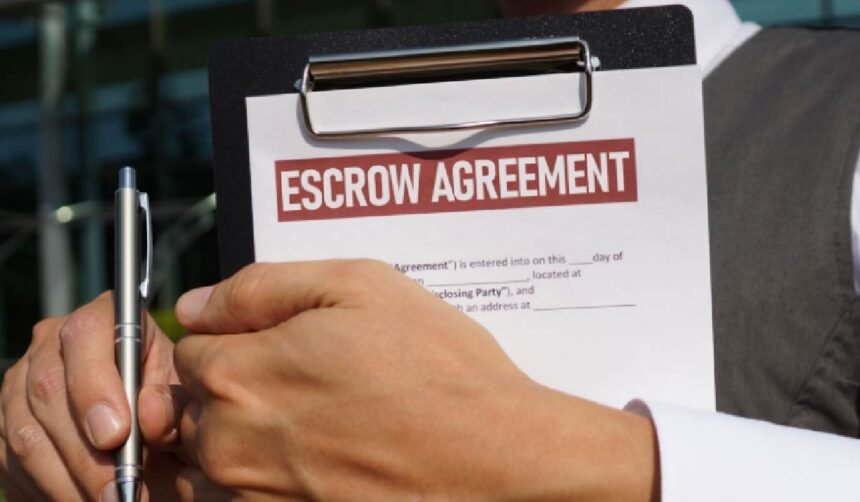Closing on a home should be exciting – not stressful. But for many buyers and sellers, the final stretch before the keys change hands can turn into a waiting game.
Why? Because even a small mistake during escrow can cause unexpected delays that push your closing date back by days or even weeks.
The good news is that most of those delays are preventable – if you know what to look out for.
Now, let’s explore the most common escrow mistakes that slow down closings, and what you can do to keep your transaction moving smoothly from start to finish.
1. Miscommunication Between Parties
You’d be surprised how often closings are delayed simply because someone didn’t get the message. When buyers, sellers, agents, lenders, and escrow officers aren’t aligned, even the smallest misunderstanding – like missing a signature or forgetting to send an updated document – can set everything back.
The best way to prevent this is by keeping communication clear and consistent. Make sure everyone knows the timeline, confirm key dates in writing, and double-check that everyone has the most recent versions of all documents.
Working with a responsive and transparent escrow service, such as Lightspeed Escrow, can make this part effortless. Their team is known for fast responses, digital efficiency, and proactive updates – exactly what you need when timing is everything.
2. Missing or Incorrect Documents
Escrow officers handle a mountain of paperwork, and every single page must be complete and accurate before closing. Missing signatures, outdated forms, or small typos can force everyone to hit pause.
Common culprits include:
- Mismatched names between the title and loan documents
- Incorrect property addresses
- Expired homeowner’s insurance certificates
- Outdated identification for one of the signers
Always ask your escrow officer for a document checklist early on. Review everything line by line before submitting, and don’t hesitate to ask questions if something seems unclear. Catching a small error now can save days later.
3. Funding Delays
Your lender might have approved the loan, but that doesn’t always mean the funds are instantly available.
Wire transfers can take time, especially if they’re sent after banking hours or across multiple institutions. In some cases, lenders hold the funds until they receive final verification from underwriting or the title company.
To stay ahead, confirm your funding timeline in advance. Ask your lender exactly when they plan to wire the money and verify with your escrow officer that the receiving details are correct. If you’re wiring your down payment or closing funds yourself, contact your bank early to ensure there are no transfer limits or verification holds that could slow things down.
4. Appraisal or Inspection Issues
Appraisals and inspections are meant to protect you, but they can also create delays if they uncover problems that need to be fixed or renegotiated. A low appraisal might require a second opinion or a change in the loan amount, while inspection findings can spark repair discussions that stretch for days.
To prevent these surprises, schedule inspections and appraisals as soon as escrow opens.
If something does come up, respond quickly and stay solution-focused. Whether you choose to renegotiate, request a credit, or move forward as is, the key is to make decisions fast so your timeline doesn’t drift.
5. Title Problems
Few things bring a transaction to a halt faster than a title issue. A property’s title must be completely clear before it can legally transfer ownership – but sometimes old liens, unpaid taxes, or mistakes in public records pop up unexpectedly.
If a title issue appears, don’t panic. These problems are usually fixable, but they take time.
Your escrow and title officers will work together to resolve the issue, but staying informed helps. Respond to document requests quickly and check in regularly to confirm progress. The faster everyone acts, the faster the issue clears.
6. Last-Minute Changes to the Deal
Sometimes buyers switch lenders mid-process or sellers adjust terms close to the finish line. While these things happen, they can create a chain reaction of updates – new disclosures, new documents, and new approvals – that inevitably delay closing.
Try to avoid major changes once escrow has opened unless absolutely necessary. If a change must happen, tell your escrow officer right away so they can update timelines and coordinate with all other parties involved.
7. Forgetting the Final Walkthrough
It’s tempting to skip the final walkthrough, especially when everyone’s eager to close. But this quick inspection is your last chance to make sure everything in the home is as agreed.
If repairs weren’t completed or something unexpected changed, the issue can delay funding or closing.
Schedule your walkthrough at least a few days before closing so there’s still time to fix small problems.
Bring your purchase agreement and inspection report with you – and don’t be afraid to speak up if something feels off.
8. Not Understanding Escrow Timelines
Escrow follows a structured order. First comes the opening, then inspections, appraisal, title review, loan approval, funding, and finally, closing. Each phase depends on the one before it.
If a single piece lags, the entire process can stall.
Buyers who understand these dependencies are less likely to be caught off guard. Ask your escrow officer for a timeline overview and check in regularly to see where things stand. The more you know about what’s next, the smoother your experience will be.
9. Overlooking Time-Sensitive Tasks
It’s easy to assume someone else is handling a task, but in real estate, deadlines move fast. A one-day delay in signing or funding can mean missing the closing window – and possibly triggering penalties or extensions.
To stay organized, set personal reminders for everything: signing appointments, insurance renewals, and wire transfers. Treat every document request as urgent, even if the closing date seems far away.
Closing Thoughts
Delays in escrow can be frustrating, but they rarely happen without warning. Most stem from simple oversights – a missing document here, a slow response there – that compound over time.
The solution isn’t to rush, but to stay ahead: communicate clearly, verify details early, and partner with professionals who keep everything on track.
Buying or selling a home is already a major life milestone; closing shouldn’t feel like the hardest part. With a little diligence and the right team by your side, your escrow can move as fast and as smoothly as your excitement does.














